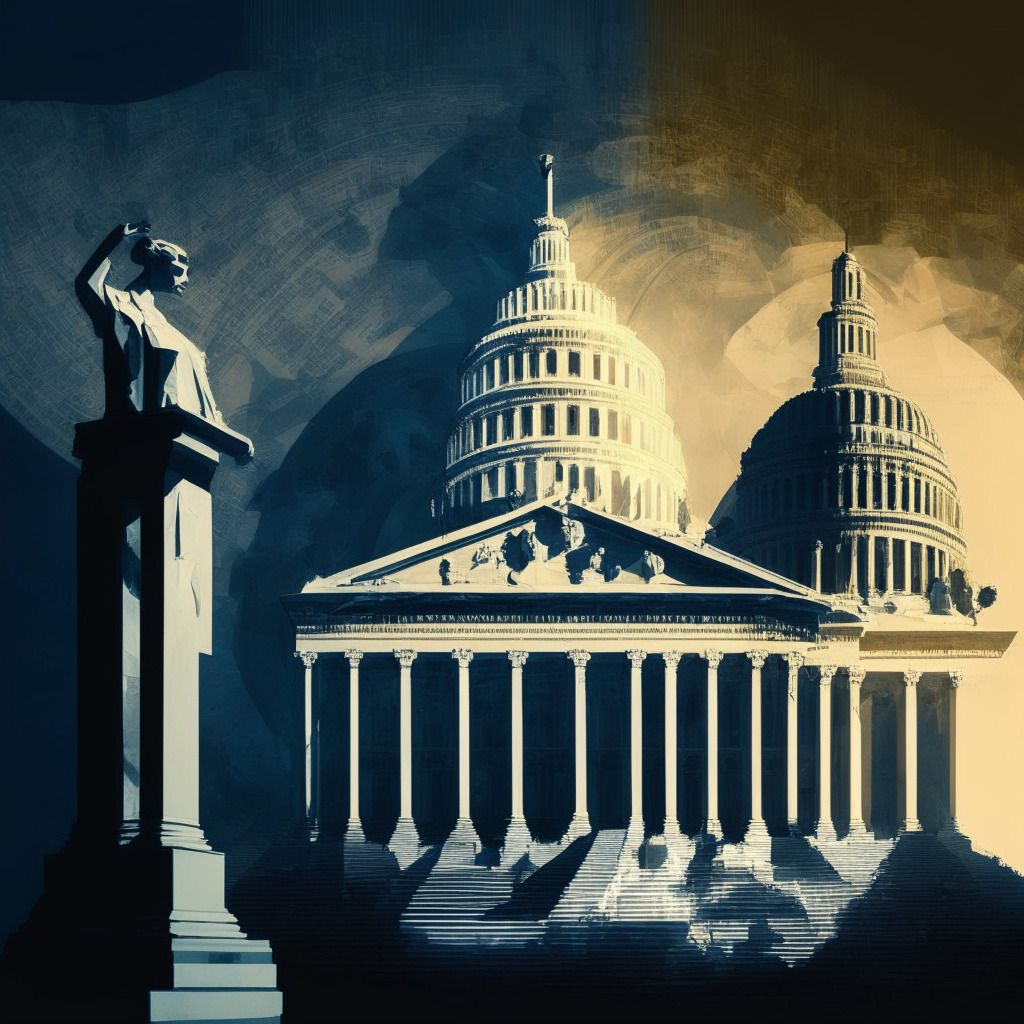The U.S. Securities and Exchange Commission (SEC) finds itself in a precarious position as Republican lawmakers in the House of Representatives have threatened to hold a hearing if their requests for information on crypto platforms seeking registration as exchanges continue to be ignored. According to Rep. Patrick McHenry (R-N.C.), the chairman of the House Financial Services Committee that oversees the SEC, an earlier April 26 request had been rebuffed. Rep. Bill Huizenga (R-Mich.) also signed these letters, coinciding with recent hearings, including a session on May 10, in which the agency was criticized for attempting to apply existing securities regulations to the nascent cryptocurrency sector.
As the regulatory body governing the burgeoning world of digital assets, the SEC faces both challenges and opportunities in crafting a legislative framework that protects investors without stifering innovation. Proponents of such regulation argue that it is essential for establishing market confidence and stability; however, others counter that the SEC’s current approach may be too rigid and overly focused on compliance.
It is important to note that the SEC Chair Gary Gensler has urged digital asset intermediaries like exchanges to “come in and register.” Nevertheless, his characterization of compliance as a voluntary act has left some market participants confused and uncertain about the rules they need to follow.
Despite these concerns, the SEC cannot disregard the inevitability of digital asset regulation. Lawmakers like McHenry and Huizenga have expressed frustration with the regulatory body’s failure to provide guidelines and have set a new deadline of May 19 to comply with their requests. Should the SEC fail to meet this deadline, the committee is prepared to schedule testimony from SEC officials regarding their perceived inability to collaborate with Congress.
As the debate around digital asset regulation continues, the role of the SEC and Congress in shaping the future of this disruptive technology remains uncertain. On one hand, a lack of transparency can hinder innovation by fostering confusion about what is legally permissible; on the other, excessive regulation risks stifling growth and pushing entrepreneurs to seek friendlier jurisdictions.
While the road to effective and comprehensive digital asset regulation is sure to be long and fraught with obstacles, progress can only come from ongoing dialogue and collaboration between all stakeholders involved – including the SEC, Congress, and the broader industry. In this complex and evolving industry, regulators and market participants must strive for balance, acknowledging the need for oversight and consumer protections while still supporting the development of this transformative technology.
Source: Coindesk




